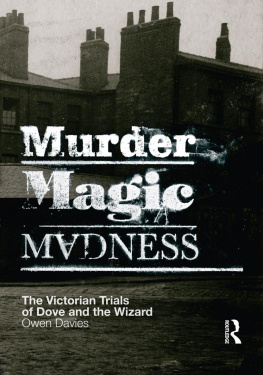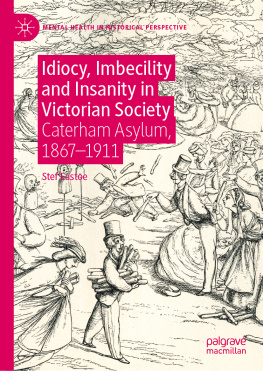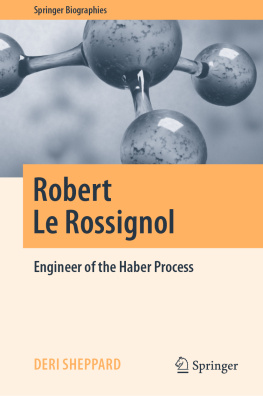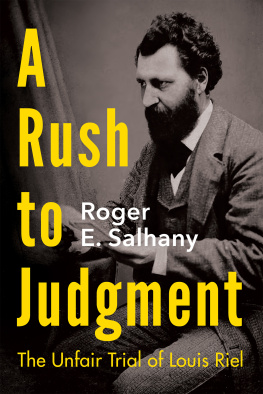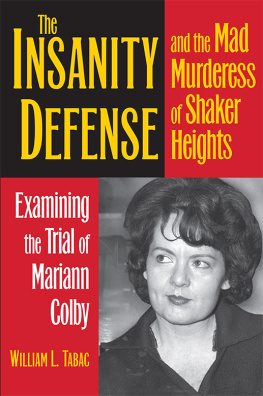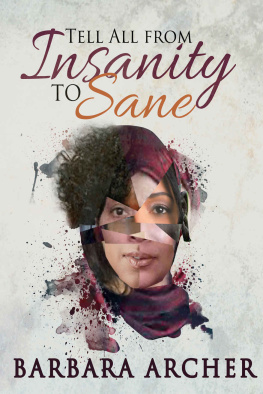2013 The University of North Carolina Press
All rights reserved
Set in Miller by codeMantra
Manufactured in the United States of America
Frontispiece: Portrait of Laura D. Fair, c. 1870. (Courtesy of Special Collections Department, University of NevadaReno Library.)
The paper in this book meets the guidelines for permanence and durability of the Committee on Production Guidelines for Book Longevity of the Council on Library Resources. The University of North Carolina Press has been a member of the Green Press Initiative since 2003.
Library of Congress Cataloging-in-Publication Data
Haber, Carole
The trials of Laura Fair : sex, murder, and insanity in the Victorian West / Carole Haber.
pages cm.
Includes bibliographical references and index.
ISBN 978-1-4696-0758-0 (cloth : alk. paper)
ISBN 978-1-4696-2646-8 (pbk. : alk. paper)
1. Fair, Laura D., 18371919Trials, litigation, etc. 2. Crittenden, Alexander Parker, 18161870. 3. Trials (Murder) CaliforniaSan Francisco. I. Title.
KF 223. F 34 H 33 2013
345.794025230949461dc23
2013002880
To Noah and Emma,
and the wonderful adults they have grown to be
CONTENTS
FIGURES
ACKNOWLEDGMENTS
I first discovered Laura Fair through a seminar I taught at the University of Delaware on murder and madness in the nineteenth century. As such, I wish to thank all those students who brought enthusiasm and insight to the many trials that we deconstructed. I am also grateful to the UD history departments faculty and graduate students who, through the Delaware History Workshop, helped me think through the meaning of this narrative. My colleagues Arwen Mohun, Anne Boylan, and James Brophy offered invaluable suggestions; my staff, Doug Tobias, Cathy Allison, Pat Orendorf, Angie Hoseth, and Janine Johnston, know how much their support meant to me. The University of Delaware also provided me with a respite from administration to begin this work, as did support from the Richardson Chair of History.
When I moved to New Orleans, Laura and her story traveled with mewhich perhaps is ironic, as this is the city in which her story began. I was asked to give the inaugural lecture for the Gender and Sexuality Studies Program at Tulane University, and faculty and students from this program served as an outstanding audience for working through the gender issues embroiled in this trial. The School of Liberal Arts extended resources for obtaining the photographs and for providing subvention support. In my office, Nicole Westerfield contributed her seemingly endless talents in the preparation of the illustrations and the manuscript, as did Tara Hamburg in making sure multiple copies arrived at the University of North Carolina Press in a timely manner.
My friends and colleagues Tom Cole and Dena Shenk, more used to me talking about the history of old age than western womens history, generously provided me with their wisdom as I thought through the meaning of this narrative.
At the University of North Carolina Press, Chuck Grench reminded me of the need to balance the chronicle with historical theory in an attempt to keep the story moving, and Sara Jo Cohen worked patiently as we sought to turn historical photographs into usable modern prints. The insightful suggestions of the outside readers for this press, historians Gordon Morris Bakken and Patricia Cohen Cline and legal scholar Patricia L. Bryan, greatly improved this work, although I, of course, am responsible for any errors in the text or interpretation.
Finally, I would like to thank my husband, Peter Rothstein, and my children for their unending support and patience. Noah and Emma, to whom this book is dedicated, probably heard far too much about Laura Fair. As they left the house to begin their lives, Laura and the evidence of her history came to fill their rooms. On their return visits, I am sure they will be delighted to see that the space has once again been rightfully returned to them.
The Trials of
Laura Fair
INTRODUCTION
LAURA FAIR AND THE UNWRITTEN LAW
On November 3, 1870, four-time married, twice-divorced, twice-widowed, thirty-three-year-old Laura Fair of San Francisco lurked in the shadows on the San FranciscoOakland ferry, the El Capitan. Dressed in a veil and dark cloak covering much of her body, she nervously examined the faces of the passengers, most of whom had just arrived in Oakland on the Overland train and had then boarded the ferry for the short ride to San Francisco. Moving hurriedly among the crowd, she frantically searched for her married, fifty-four-year-old lover, Alexander Parker Crittenden. Crittenden, she knew, had planned to meet his wife, Clara, and three of their children as they debarked from the train and then accompany them on the ferry ride to San Francisco. Claras return to California had once again caused Laura to doubt the devotion of her long-time paramour. Over the course of their very public seven-year relationship that repeatedly moved between San Francisco and Virginia City, Nevada, and even crisscrossed the country, Crittenden continually swore to her that he no longer loved his spouse of more than thirty years. Having promised Laura that Clara would never again step foot in San Francisco, he had pledged that he would obtain an Indiana divorce and then introduce her to society as his adored, and highly respectable, wife. She would, he asserted, finally be able to rid herself of the rumors of the past and be accepted as a true lady.
As she ran through the decks of the ferry, Laura was convinced that the key to her future lay in observing Crittenden as he greeted Clara as she debarked from the train. Would she see a man who was only playing the role of the dutiful husband, or would she view a warm and contented husband who, regardless of years of promises, had never had any intention of leaving his wife? After losing sight of Crittenden among the many travelers, Laura finally discovered him seated on the outside deck of the Pleading not guilty on the basis of temporary insanity caused by dysmenorrheaa problematic and painful menstrual cycleshe then argued that everything that occurred upon the ferry was simply a blur; she had no knowledge or control of a single event that had taken place on that day.
Yet, while Laura claimed to possess no memory of the shooting, the press and the public, as well as later generations of writers, were captivated by it. In the 1870s, her trials became nothing short of a national sensation. Not only did many of the countrys leading figures become entwined in her story, but the trials provided a window into the often-hidden side of elite California society. As newspapers competed to provide the most complete coverage and the courtrooms filled with men and numerous women who had never before attended a trial, the scandal replaced the presidential race, the Crdit Mobilier affair, and the Franco-Prussian War as worthy of extensive notice. Here was a story, reporters informed their readers, that was far more than a tale of love gone wrong. Its outcome would determine the role of family, honor, and morality in nineteenth-century America. Speaking for the prosecution at the initial trial, Harry Byrne declared that it was the most important case that has been tried upon the Pacific coast, and, in some aspects, may be regarded as the most important case in the annals of criminal prosecution.
While the words of the prosecution might be dismissed as a dramatic flourish, they did reflect the publics fascination with the trials that reached far beyond those who were able to push their way into the courtroom. For many, and in starkly contrasting ways, Fair became a symbol of the major social questions of the day. For the prosecutors, she represented the horrors of free love, wanton sexuality, and radical thinking. For womens rights supporters, such as Susan B. Anthony and Elizabeth Cady Stanton, she was a victim of mens deceitfulness and power, while for anti- suffrage advocates, such as Horace Greeley, she was the embodiment of all that was wrong with the womens movement. Doctors testified that her behavior was incontestable proof that womens biological cycle limited their abilities and created grave instability, while two defense teams tried to portray her as an innocent young woman who, under the influence of


